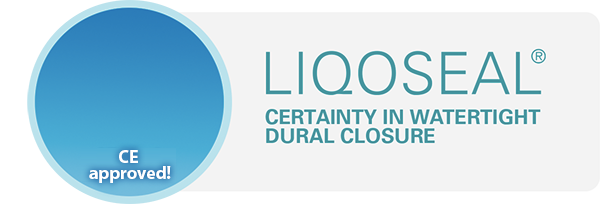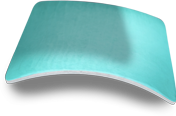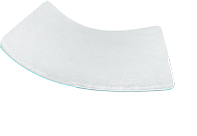Polyganics announces Birmingham Hand Centre efficacy study of nerve conduit NEUROLAC® in finger surgery
- NEUROLAC® nerve conduit to be evaluated in 170+ patient CONNECT study over 36 months, with interim results due in Q4 2017 and full results in H2 2019
- Study centre – the Birmingham Hand Centre, part of the NHS’s Queen Elizabeth Hospital in Birmingham, a leading UK centre in hand and reconstructive surgery
Groningen, The Netherlands, 7 December 2016 – Polyganics, a privately held medical technology company focused on the development, manufacturing and commercialization of innovative bioresorbable medical devices that facilitate tissue repair and regeneration, announced today the launch of the CONNECT study, in collaboration with the Birmingham Hand Centre, part of the University Hospitals Birmingham NHS Foundation Trust in the UK. The study has been developed to deliver improvements in peripheral nerve repair after injury.
The CONNECT (COnduit Nerve approximation versus Neurorrhaphy Evaluation of Clinical outcome Trial) study will evaluate the benefits of using Polyganics’ NEUROLAC® nerve guide in a novel technique called “tensionless repair” for finger nerve surgery, to improve the quality of nerve regeneration. Complex nerve injuries to the hand are quite common, with approximately 300,000 cases a year in Europe alone, according to a recent publication in Biomaterials1. Such injuries can create a long term or even permanent issue for patients, some of whom will experience chronic pain or never recover full feeling in their hands. This study will assess the advantages of using a nerve conduit as an addition to microsurgical neurorrhaphy, or nerve suturing for recovering sensitivity of injured fingers. The Birmingham Hand Centre, at the Queen Elizabeth Hospital in Birmingham, is part of the University Hospitals Birmingham NHS Foundation Trust. It is a leading UK centre in hand and reconstructive surgery.
CONNECT’s Chief Investigator Mr. Dominic Power will lead the “tensionless repair” efficacy study of around 170 patients (or 240 lesions to the hand) enrolled across three equal sized lesion groups over 18 months, with a 12-month follow-up, giving an anticipated duration (including analysis) of 36 months. One group will receive direct microsurgical suture, one will receive suture with NEUROLAC® nerve conduit augmentation, and the third group will receive NEUROLAC® nerve conduits with remote suture away from the injury site. Interim results are expected in Q4 2017 and full results in H2 2019.
Mr. Dominic Power, Consultant Hand and Peripheral Nerve Surgeon of the Birmingham Hand Centre, said; “Birmingham has been leading the way in nerve research in the UK and I hope that the results of this CONNECT study will lead to further benefits for patients worldwide.”
Rudy Mareel, CEO of Polyganics, said; “Our nerve conduit NEUROLAC® is designed to help patients recover sensitivity in injured fingers where a nerve has been cut, thereby helping them to a full recovery, whilst significantly reducing the risk of painful neuroma formation. This collaboration with the internationally recognized center of excellence for hand surgery in the UK should demonstrate conclusively that many more patients with finger injuries can benefit from Polyganics’ innovative peripheral nerve repair products.”
Polyganics will provide financial support for the trial. The Birmingham Hand Centre is the initiator of the CONNECT study, which will be based at the Institution for Translational Medicine and the Surgical Reconstruction and Microbiology Research Center at the University Hospitals Birmingham NHS Foundation Trust.
1 Haastert-Talini K, Geuna S, Dahlin LB, Meyer C, Stenberg L, Freier T, et al. Chitosan tubes of varying degrees of acetylation for bridging peripheral nerve defects. Biomaterials. 2013;34:9886–904. doi:10.1016/j.biomaterials. 2013.08.074 https://www.ncbi.nlm.nih.gov/pmc/articles/PMC4727346/
Notes to Editors
About NEUROLAC®
NEUROLAC® is a unique synthetic and resorbable nerve conduit designed to support regeneration of peripheral nerve discontinuities up to 20 mm in patients who have sustained a complete division of a nerve, which commonly occurs from a knife wound to the hand whilst cooking, gardening or decorating. Such wounds are also common in military personnel injured by combat-related trauma. Conduits support nerve recovery by bridging small nerve gaps and avoid the need for a graft, or suturing the wound with tension. Such cases of complex nerve injuries to the hand number approx. 600,000 cases a year globally. About a third of patients who have current standard of care treatment involving microsurgical repair never regain useful sensitivity of the injured finger, resulting in impaired function of the hand.
About Polyganics
Polyganics is a medical technology company with multiple versatile polymer platforms. The Company develops, manufactures and commercializes innovative bioresorbable medical devices that facilitate tissue repair and regeneration.
Polyganics’ portfolio includes products developed in-house and in collaboration with leading medical technology companies and academic centers of excellence. In the Peripheral Nerve Repair (PNR) and neurosurgery field, the portfolio includes three marketed products: VIVOSORB® for minimizing unwanted tissue adhesions after surgery; NEUROLAC® for supporting PNR following hand surgery; and NEUROCAP® for the management of symptomatic neuromas. Products in development include a sealant for the dural membrane, for use post brain surgery.
In 2014, Polyganics sold its Ear, Nose & Throat (ENT) surgery business unit (the NASOPORE® product family including HEMOPORE®, SINUPORE® and OTOPORE®) to US Company Stryker, one of the world’s leading medical technology companies. NASOPORE®, a reliable, easy-to-use, nasal wound care dressing made of biodegradable foam, has been used in over 2.5m procedures globally.
Polyganics is profitable and privately held. The Company is based in Groningen, The Netherlands, a center of biomedical engineering excellence, in an ISO 13485-certified manufacturing facility. The Company’s polymer platform technologies are protected by a broad portfolio of patents and its products have received clearance from the US FDA, CE-approval, and approval from CFDA and other international authorities.
About the Birmingham Hand Centre
The Hand Unit at Queen Elizabeth Hospital Birmingham (QEHB) is one of the largest in the country. With the addition of the elective care provided at the Royal Orthopaedic Hospital (ROH), it provides a comprehensive service to treat all conditions of the adult hand. At the heart of the unit there are five orthopaedic and four plastic surgery consultant hand surgeons.
QEHB is the main centre for hand trauma in Birmingham and not only deals with simple hand injuries but is also the regional centre for digital and hand replantation following amputation, the regional Major Trauma Centre (MTC) and the national centre for repatriated injured military patients who often have very complex explosion injures to their hands.
The West Midlands peripheral nerve injury service was established at the Birmingham Hand Centre at the Queen Elizabeth Hospital in Birmingham in 2010. The team provides a comprehensive range of treatment options for patients with paralysis after nerve injury, spinal cord injury or stroke. Research activity is undertaken through the Hand and Peripheral Nerve (HaPN) Research Network and includes a number of clinical trials in nerve repair, rehabilitation and spasticity.
For more information, visit: www.polyganics.com




